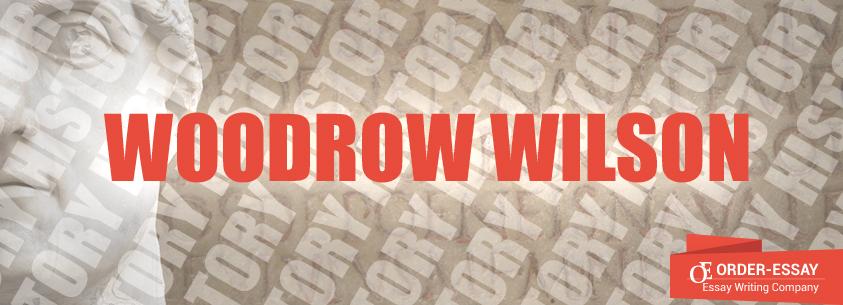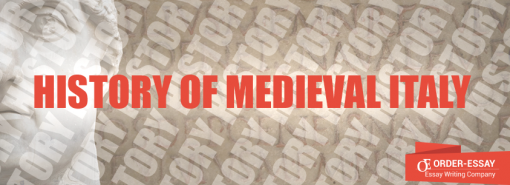
Woodrow Wilson’s presidential legacy in the national and global peace is perhaps the most recognized worldwide. He came into power as the 28th president of the United States at the time when there was an impending threat to global peace. Born in 1856 in Staunton, Virginia, when there was the Civil War, he grew up with the stigma related to war. He detested war and longed for a peaceful world and this probably helped him earn a name in promoting peace. His father being a minister in a Presbyterian church brought him up with virtues of respect to others and this aspect of his life propelled him to national and later on international politics (Heckscher 50–143).
Woodrow Wilson studied law at Princeton (New Jersey College by then) where his hard work and determination later earned him a Ph.D. in political science at John Hopkins College. His rise to leadership began at an early age and was well shaped when he became the president of the Princeton University. His high-minded ideals and ambitions prepared him for what has been described by scholars as the rich global politics of his time. His political career began in college and his ambitions were motivated by his studies on law and political systems in the world (Wilson et al. 347–501; Barber 658–703).
He harbored the spirit of statesmanship from the time he began his studies and this later led to his endorsement of governorship of New Jersey in 1910. During his campaigns to capture this much-coveted seat, he gave powerful speeches on leadership, liberty, and democracy. His open support to openness and transparency in leadership stirred political fury among the conservatives and subsequently led his supporters to the Democratic Party. He was declared the new governor of New Jersey, which widely opened his career to national politics where he was endorsed in 1912 by democrats’ convention to run for the presidency that he won in March 1913 (Bailey and Wilson 7–15; George and George 413–485).
When he came into power on 4th March, 1913, the world was looking up to the United States to provide leadership to the globe. It was during this time that most countries were held under the cruelty of dictatorial leadership, and there was a need for deliberate measures to save the citizens. During his campaign, he has tagged himself as a true representative and servant of the people in the free world. His test of leadership came when the First World War broke out in July 1914, hardly a year into the office. There was a growing interest in the America people to spearhead the countries as a leader in democracy, peace, and development in the global arena (Wilson 155–300; George and George 248–527).
First World War outbreak provided a crucial chance for the United States to demonstrate to the world its leadership, and the president Wilson found himself at the centre of the global affairs. He stamped authority through engaging the warring countries through a series of peaceful negotiations. The announcement of the United States’ entry into the war in 1917 affirmed his commitment in ending global conflict. According to Wilson ( 23–54), he is best remembered for his fourteen point’s address of 1918 where he called for peaceful reconciliation and advocated for self-determination of the countries (Knock 413–478).
President Woodrow Wilson stood against annexation and indemnities of the nations in ending war and this described his uttermost statesmanship and humanitarian ideologies that were needed to end the crisis. It was during his shrewd leadership that historic signing of the Treaty of Versailles (1919) was done ultimately ending the war. When he openly declared his nation support to end the war in 1917, he was motivated by his dream of making the world safe for democracy, economic development progress, upholding of human rights to life and protection from war (Knock 451).
Woodrow Wilson envisioned in his leadership during peaceful negotiations for a free globe where every person would enjoy freedom and liberty enshrined in the human rights acts that exist today. The terms and conditions contained in the Treaty of Versailles signed in Paris, France, is a testimony of the important role played by the United States in ending the war under Woodrow’s presidency. The United States foreign policy was enhanced in the fourteen-point speech that envisioned setting of the new world order after the war and most significantly was the formation of the League of Nations. The League of Nations was set up purposely to oversee world peace and its structures laid to deal with impending conflicts with the ultimate goal of preventing an occurrence of another war (Kissinger and Wellings 934–1003; Houston and Wilson 41–97; Knock 459).
However, Woodrow suffered a political blow when the US Senate declined to ratify the Treaty of Versailles and subsequently the United States failed to join the League of Nations. There was growing anti-war sentiments and protests as the public concern got out of hand. The loans that his administration borrowed from Federal Reserve Banks and Liberty Bonds were too huge. The economy was at the edge of collapsing but in his affirmation speech, he promised to salvage the perishing humanity as he worked on putting the economy back to the tract (Devlin and Wilson 333–384; Hoff 412–465).
The world recognized his tireless efforts in promoting world peace and in 1919, he was awarded the Nobel peace prize as recognition of his special contributions in forging of peace. The first step of bringing the warring groups into a negotiation was the most difficult step in solving the conflict. However, he was able to organize a series of meetings that culminated in a peace deal. Although his dream to keep the world a peaceful place for everyone did not last beyond 1940, his approach to solving international wars acted as a blueprint during the subsequent world war (Heckscher 703).
President Woodrow depicted the United States as a leader in promoting global peace and prosperity that is quite evident to date. Under his presidency, his nation was kept out of the war until Germany declared unrestricted submarine warfare and attacked innocent citizens who were sailing. The congress passed an important landmark legislation dubbed “making the world safe for democracy.” Subsequently, he took his troops to France to fight the cruel German soldiers an act, which angered the Republican dominated senate and his political rival Henry Cabot Lodge (Devlin and Wilson 611–687).
However, his commitment to maintaining peace was not compromised and that is why upon end of the war, he was determined to make peace free world. He opposed French and British demands to punish Germany through sanctions and paying costs of the war openly but advocated for peace grounded on the commitment of leaders to keep off from future international conflicts (Ambrosius 725–732; Bailey 559–673; Link and Wilson 837–862).
Woodrow’s commitment in global affairs was not a smooth political terrain for him. Back at home, his conservative opponents fiercely opposed him. The Republican congress opposed peace negotiations under his leadership making a setback to his international career as well as his personal reputation as a leader of integrity and democratic ideals. A section of citizens blamed him for indulging the country into costly international affairs. Reports of decline in the economic growth and losses incurred were blamed on him (Bailey 344–376; Schlesinger and Israel 761–853).



However, his commitment to steer the world peace and create an international place for his country was unstoppable. He quickly reorganized his team ahead of 1916 elections that according to his critiques were going to fail. Woodrow championed for workers’ rights that led to reduction of working hours, better working conditions and better pay (George and George, 115–286).
The initiative fostered vibrant labor unions and in return, the majority of workers supported him leading to his narrow recapture of the second term in office, in 1916. His fight against child labor marked was an important milestone in the history of the United States. It portrayed him as an accomplished leader who used his abilities to channel global interest, at the same time positively improving living standards of his country citizens (Cooper Jr 564–612). It is quite evident that Woodrow’s involvement in global matters during early 20th century placed America strategically in addressing future world matters. However, foreign travels and missions executed on world matters exposed him to his political rivals. The anti-war sentiments through protests greeted Woodrow after he gave the fourteen points speech (Knock 555–672; Houston and Wilson 413–453).
Get a Price Quote
He hoped to reconstruct the fallen empires into new countries and offer financial support for these newly born nations to take off. However, his political rival Henry Cabot fiercely fought his ideologies. The greatest undoing of Woodrow second term in office was that the republic answered the majority a fact that incapacitated his push for substantial legislation that championed his course (Wilson and Hale 478–492).
In conclusion, it was Wilson’s last term in office that untimely led to his incapacitation and his demise. During this term, the increasing unpopularity coupled with post-war depression caused a stroke and he remained paralyzed for the remaining part of his term in office. His wife ran the activities in the White House for the remainder of his term. The Democrats were not able to mount a serious political campaign and they subsequently lost the seat to a Republican Warren G. Harding. Wilson retired from politics, settled in Washington, DC where he finally died in February 1924. Woodrow Wilson’s legacy in promoting and maintaining world peace in early 20th centuries remains deeply embedded in the history of global peace








